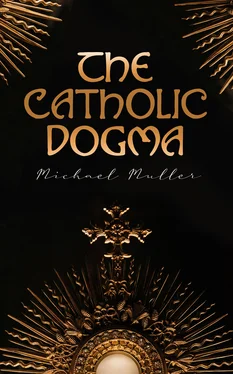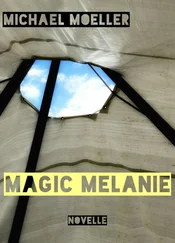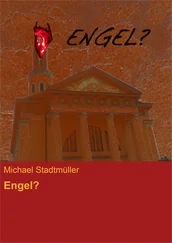Michael Müller - The Catholic Dogma
Здесь есть возможность читать онлайн «Michael Müller - The Catholic Dogma» — ознакомительный отрывок электронной книги совершенно бесплатно, а после прочтения отрывка купить полную версию. В некоторых случаях можно слушать аудио, скачать через торрент в формате fb2 и присутствует краткое содержание. Жанр: unrecognised, на английском языке. Описание произведения, (предисловие) а так же отзывы посетителей доступны на портале библиотеки ЛибКат.
- Название:The Catholic Dogma
- Автор:
- Жанр:
- Год:неизвестен
- ISBN:нет данных
- Рейтинг книги:4 / 5. Голосов: 1
-
Избранное:Добавить в избранное
- Отзывы:
-
Ваша оценка:
- 80
- 1
- 2
- 3
- 4
- 5
The Catholic Dogma: краткое содержание, описание и аннотация
Предлагаем к чтению аннотацию, описание, краткое содержание или предисловие (зависит от того, что написал сам автор книги «The Catholic Dogma»). Если вы не нашли необходимую информацию о книге — напишите в комментариях, мы постараемся отыскать её.
The Catholic Dogma — читать онлайн ознакомительный отрывок
Ниже представлен текст книги, разбитый по страницам. Система сохранения места последней прочитанной страницы, позволяет с удобством читать онлайн бесплатно книгу «The Catholic Dogma», без необходимости каждый раз заново искать на чём Вы остановились. Поставьте закладку, и сможете в любой момент перейти на страницу, на которой закончили чтение.
Интервал:
Закладка:
It must be remembered that every dogma is exclusive, and admits of no interpretation contrary to that which it has received from the beginning. To every dogma, therefore, may be added what Pius IX. added to the definition of the Immaculate Conception of the Ever Blessed Virgin Mary, namely: "Wherefore, if any persons - which God forbid - shall presume to think in their hearts otherwise than we have defined, let them know that they are condemned by their own judgment, that they have suffered shipwreck in faith, and have fallen away from the unity of the Church."
"Let those, therefore," says Vincent of Lerins, "who have not learned theology well, learn it better; let them try to understand of each dogma as much as they are able, and let them believe what they are not able to understand; let them remember the words of St. Paul: ‘If any one shall teach you anything besides that which you have received, let him be anathema.’ (Ephes. i. 9.) Dediscant bene quod didicerant non bene; et ex toto Ecclesiae dogmate quod intellectu capi potest capiant, quod non potest credant. O Timothee, depositum custodi, devitans prophanas vocum novitates. Si quis vobis annuntiaverit..praeterquam quod accepistis, anathema sit. (Commonit.) "It is according to this Catholic and apostolic spirit that we have endeavored to explain our religion, and especially the great dogma "Out of the Catholic Church there is positively no salvation." But our explanation, it seems, is too Catholic for some individuals, because we have not admitted into it any modern opinions and latitudinarian principles. Believing, therefore, that "they would do a service to God" and to their fellowmen, especially to their separated brethren, they have, through the Buffalo Catholic Union and Times , made known that we have misrepresented Catholic belief concerning the dogma "Out of the Church there is no salvation."
The Right Reverend George Hay, Bishop of Edinburgh, Scotland, who, when yet a Protestant, took the vow to do all he could to extirpate Popery, wrote a treatise entitled "An Inquiry whether Salvation can be had without true faith and out of the Communion of the Church of Christ." In this treatise, the pious and very learned Prelate of the Church proves most clearly that "out of the true Church no one can be saved," and adds "that it is only of late that that loose way of thinking and speaking about the necessity of true faith, and of being in communion with the Church of Christ, has appeared among the members of the Church, and that this is one of the strongest grounds of its condemnation. It is a novelty, it is a new doctrine; it was unheard of from the beginning; nay, it is directly opposed to the uniform doctrine of all the great lights of the Church in all former ages. It is, therefore; a matter of surprise that anybody should call this point in question; that indeed this can only be accounted for from the general spirit of dissipation and disregard for all religion, which so universally prevails now-a-days; for the first authors of the so-called reformation, and some of their most candid followers, seeing the strong proofs from Scripture for this point, and not finding the smallest foundation in the Sacred Writings to support the contrary, have solemnly acknowledged it, however much it made against themselves; for the Protestant Church of Scotland, in her Confession of Faith, agreed upon by the divines of Westminister, approved by the General Assembly in the year 1646, and ratified by Act of Parliament in 1649, in the chapter on the Church speaks thus, "The visible Church, which is also Catholic or universal under the gospel (not confined to one nation, as before, under the law), consists of all those throughout the world that profess the true religion, and of their children, and is the kingdom of the Lord Jesus Christ, the house and family of God, out of which there is no ordinary possibility of salvation." (Confession of Faith chap. xxv.)
"But their predecessors in the preceding century, when the Presbyterian religion first began in Scotland, speak no less clearly on the same subject; for in their Confession of Faith, authorized by Parliament in the year 1560, ‘ as a doctrine grounded upon the infallible word of God,’ they speak thus, Article xvi.: ‘As we believe in one God, Father, Son, and Holy Ghost, so we do most constantly believe, that from the beginning there hath been, and now is, and to the end of the world shall be one Kirk - that is to say, one company and multitude of men, chosen by God, who rightly worship and embrace him by true faith in Jesus Christ; … which Kirk is Catholic - that is, universal; because it containeth the elect of all ages, etc.: out of which Kirk there is neither life nor eternal felicity: and therefore we utterly abhor the blasphemy of them that affirm that men who live according to equity and justice shall be saved, what religion so-ever they have professed.’ This confession of the original Kirk of Scotland was reprinted and published in Glasgow in the year 1771, from which this passage is taken. Calvin himself confesses the same truth, in these words, speaking of the visible Church: ‘Out of its bosom,’ says he, ‘no remission of sins, no salvation is to be hoped for, according to Isaiah, Joel, and Ezekiel; … so that it is always highly pernicious to depart from the Church;’ and this he affirms in his Institutions themselves, B. iv., c: 1, § 4.
We shall add one testimony more, which is particularly strong;.it is of Dr. Pearson, a Bishop of the Church of England, in his exposition of the Creed, edit. 1669, where he says, ‘The necessity of believing the Catholic Church appeared, first, in this, that Christ hath appointed it as the only way to eternal life. We read at the first, Acts ii. 47, "That the Lord added to the Church daily such as should be saved:" and what was then daily done hath been done since continually. Christ never appointed two ways to heaven; nor did he build a Church to save some, and make another institution for other men's salvation (Acts iv. 10): "There is no other name under heaven given among men, whereby we must be saved, but the name of Jesus;" and that name is not otherwise given under heaven than in the Church. As none were saved from the deluge but such as were within the ark of Noe, framed for their reception by the command of God; as none of the first-born of Egypt lived but such as were within those habitations whose door-posts were sprinkled with blood, by the appointment of God, for their preservation; as none of the inhabitants of Jericho could escape the fire or sword, but such as were within the house of Rahab, for whose protection a covenant was made; - so NONE shall ever escape the eternal wrath of God who belong not to the Church of God.’ Behold how far the force of truth prevailed among the most eminent members of the Reformation before latitudinarian principles had crept in among them!
"It is true, indeed, that, though the founders of these Churches, convinced by the repeated and evident testimonies of the Word of God, professed this truth, and inserted it in the public standards of their religion, yet their posterity now disclaim it, and accuse the Catholic Church of being uncharitable for holding it; but this only shows their inconsistency, and proves that they are devoid of all certainty in what they believe; for if it was a divine truth, when these religions were founded, that out of the true Church, and without the Catholic faith, there is no salvation , it must be so still; and if their first founders were mistaken on this point, what security can their followers now have for any other thing they taught? But the Catholic Church, always consistent and uniform in her doctrine, always preserving the words once put in her mouth by her Divine Master, at all times and in all ages has believed and taught the same doctrine as a truth revealed by God, that ‘out of the true Church of Christ, and without his true faith, there is there is no possibility of salvation;’ and the most authentic public testimony of her enemies proves that this is the doctrine of Jesus, and of his holy Gospel, whatever private persons, from selfish and interested motives, may say to the contrary. ‘What a reproach must this be before the judgment-seat of God to those members of the Church of Christ who call in question or seek to invalidate this great and fundamental truth , the very fence and barrier of the true religion; which is so repeatedly declared by God in his Holy Scriptures, professed by the Church of Christ in all ages, attested in the strongest terms by the most eminent lights of Christianity, and candidly acknowledged by the most celebrated writers and divines of the Reformation! Will not every attempt to weaken the importance of this divine truth be considered by the great God as betraying his cause and the interests of his holy faith? and will those who do so be able to plead even their favorite invincible ignorance in their own defence before him?’ (From Sincere Christian , American Edition.)
Читать дальшеИнтервал:
Закладка:
Похожие книги на «The Catholic Dogma»
Представляем Вашему вниманию похожие книги на «The Catholic Dogma» списком для выбора. Мы отобрали схожую по названию и смыслу литературу в надежде предоставить читателям больше вариантов отыскать новые, интересные, ещё непрочитанные произведения.
Обсуждение, отзывы о книге «The Catholic Dogma» и просто собственные мнения читателей. Оставьте ваши комментарии, напишите, что Вы думаете о произведении, его смысле или главных героях. Укажите что конкретно понравилось, а что нет, и почему Вы так считаете.












